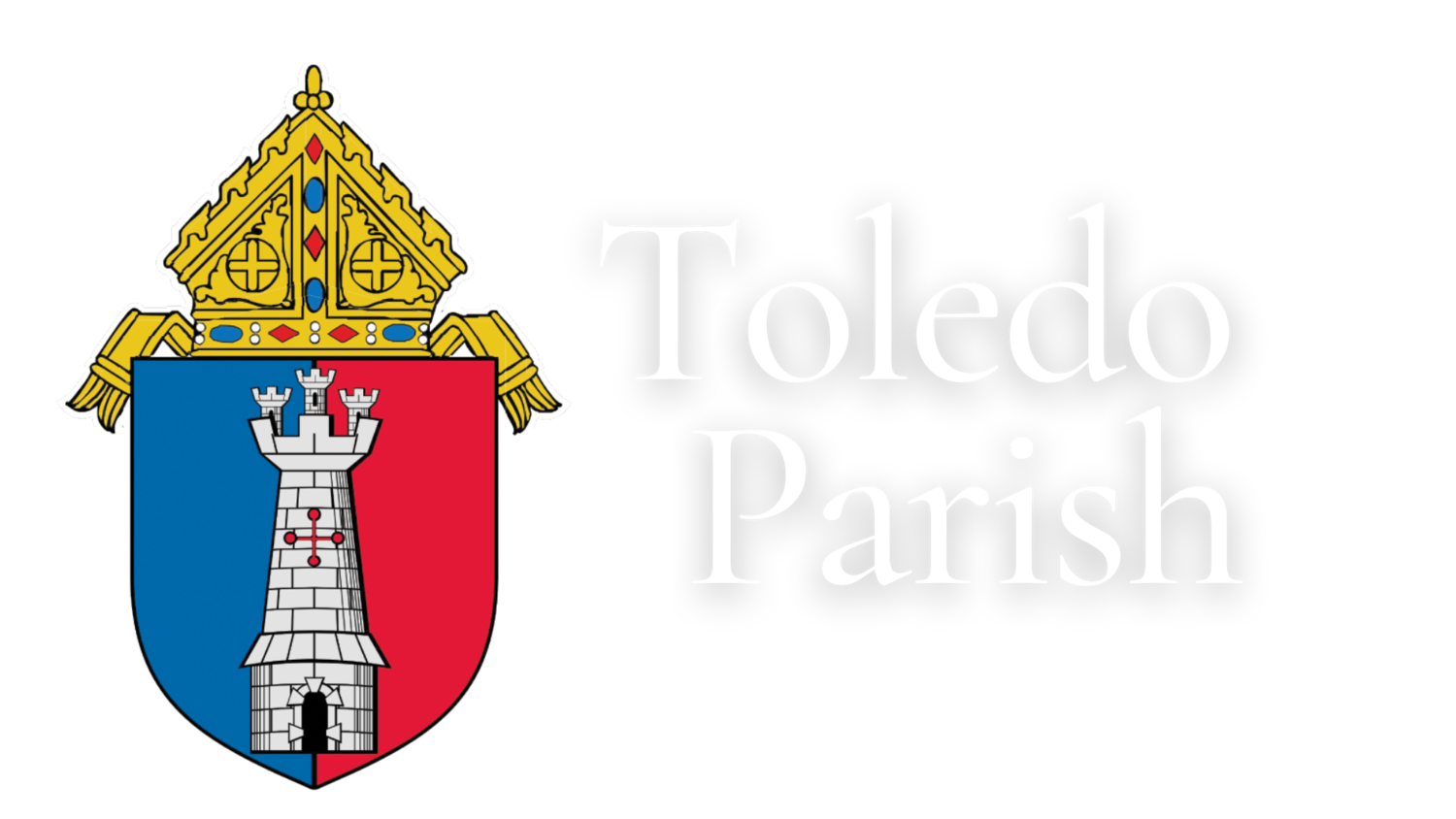OCIA
Contact
(Liturgy/Rites) Mr. Daniel Demski | Director, Office of Divine Worship - ddemski@toledodiocese.org
(Catechesis)
Resources
Recommended Resources
FORMED.org RCIA Resources | Pathway RCIA
Symbolon (Included with FORMED.org)
Continuing Formation
Rite of Election
Best Practices for OCIA
Running an effective OCIA (Order of Christian Initiation of Adults, formerly RCIA) in a Catholic parish involves more than just a curriculum—it’s about forming disciples, integrating people into the life of the Church, and walking with them on a profound journey of conversion. Here are some best practices, both pastoral and practical:
1. Prioritize Relationships Over Programs
Accompaniment is key. Ensure every inquirer is paired with a sponsor or mentor who truly walks with them—answers questions, prays for them, and models discipleship.
Host informal get-to-know-you events and opportunities for fellowship, not just classes.
2. Create a Year-Round OCIA Process
Move away from a rigid "September-to-Easter" academic model. Instead, welcome inquirers at any time of the year.
Catechize based on where they are in the journey, not on a preset timeline.
3. Foster a Team-Based Approach
Build a core OCIA team: not just a single director, but catechists, hospitality leaders, discernment partners, and logistics coordinators.
Include diverse voices—clergy, religious, lay men and women—who can reflect the richness of the Church.
4. Embrace the Liturgical Rites
Do not skip the minor rites—Rite of Acceptance, Rite of Sending, Scrutinies, Presentations. These are not optional extras; they are powerful moments of grace.
Celebrate them well, with the full parish involved when possible. These are evangelization opportunities!
5. Focus on Conversion, Not Just Information
Teach who we believe in, not just what we believe. Christ-centered, kerygmatic catechesis comes first.
Incorporate prayer, Scripture reflection, personal testimony, and spiritual practices into each session.
Provide time for silence, discernment, and interior processing—not just Q&A and lectures.
6. Integrate Candidates into Parish Life
Encourage participation in parish events, service opportunities, and liturgical ministries even before full initiation.
Introduce them to parish small groups, ministries, and social opportunities.
7. Train and Form Sponsors Well
Do not just assign sponsors last minute. Select and train them intentionally.
Offer them formation too—on accompaniment, prayer, listening, and sharing their faith.
8. Don't Stop at the Easter Vigil
Mystagogia should be more than a four-week afterthought. Continue formation and community-building at least through Pentecost—ideally up to a full year post-initiation.
Help the newly initiated find their long-term place in the parish.
9. Include Time for Discernment
Not everyone who inquires is ready. That’s okay.
Build in regular check-ins and prayerful discernment with the pastor or team to help people proceed at the right pace.
10. Be Welcoming, but Authentic
Make the process accessible, personal, and inviting—but don’t water down the faith.
Trust that people are hungry for truth, beauty, and goodness. The full Gospel and the richness of Catholicism are compelling!
Best practices for inviting people to OCIA
1. Make It Personal, Not Promotional
The best invitations come through relationships. Train your parishioners to be on the lookout for people who:
Are curious about the faith
Have Catholic spouses or children
Were baptized but never confirmed
Attend Mass but never receive Communion
Encourage a “Who’s Your One?” approach: ask each parishioner to pray about inviting one person to OCIA each year.
2. Extend the Invitation Frequently and Clearly
Include a regular OCIA invite in bulletins, announcements, and the parish website. Use warm, inviting language:
“Are you curious about the Catholic faith?”
“Have you been thinking about becoming Catholic?”
“Do you want to explore what it means to follow Jesus in the Catholic Church?”
Don't assume people know what "OCIA" is—spell it out, and describe it in seeker-friendly terms.
3. Host Inquiry Nights or Info Sessions
Offer “Come and See” events monthly or quarterly—no commitment required.
Make it casual, with refreshments, a short talk, testimonies, and time for Q&A.
Promote it in-person after Mass, on social media, and with personal invitations.
4. Leverage Your Sacramental Prep
Invite non-Catholic parents who attend baptism or First Communion prep for their children.
During marriage prep, ask if either person is non-Catholic and offer OCIA as a journey they can take together.
5. Tap Into Your School and CYO Communities
Catholic schools and CYO events often draw families who aren't Catholic but are open.
Partner with principals, DREs, and coaches to identify and personally invite those families.
6. Train the Whole Parish to Be Missionary Disciples
Run a “Missionary Discipleship” training for key parish leaders and liturgical ministers.
Teach them how to naturally share their faith and extend an invitation to OCIA.
Use homilies, small groups, and witness talks to form an invitational culture.
7. Target Key Liturgical Moments
Use the Easter season, Pentecost, and Advent to plant seeds—people are already reflecting on deeper spiritual things.
After big liturgies like Christmas, Easter, or First Communion Masses, explicitly invite people to learn more about becoming Catholic.
8. Share Testimonies from OCIA Graduates
Share video or written testimonials from past participants.
Use bulletin inserts, social media, or a short "OCIA Sunday" witness after Mass.
9. Create a Culture of Radical Welcome
Ensure your parish feels warm, inclusive, and interested in newcomers.
Have a welcome team or hospitality ministry that’s trained to notice, engage, and refer people to OCIA when appropriate.
10. Pray and Trust the Holy Spirit
OCIA isn’t just a program—it’s a movement of grace.
Ask the parish to pray regularly for those discerning the faith.
Hold holy hours or prayer campaigns specifically for future catechumens and candidates.
Looking for something else?
Make a suggestion.
Can’t find what you are looking for? Let us know so we can help you find it or add it if its missing.


